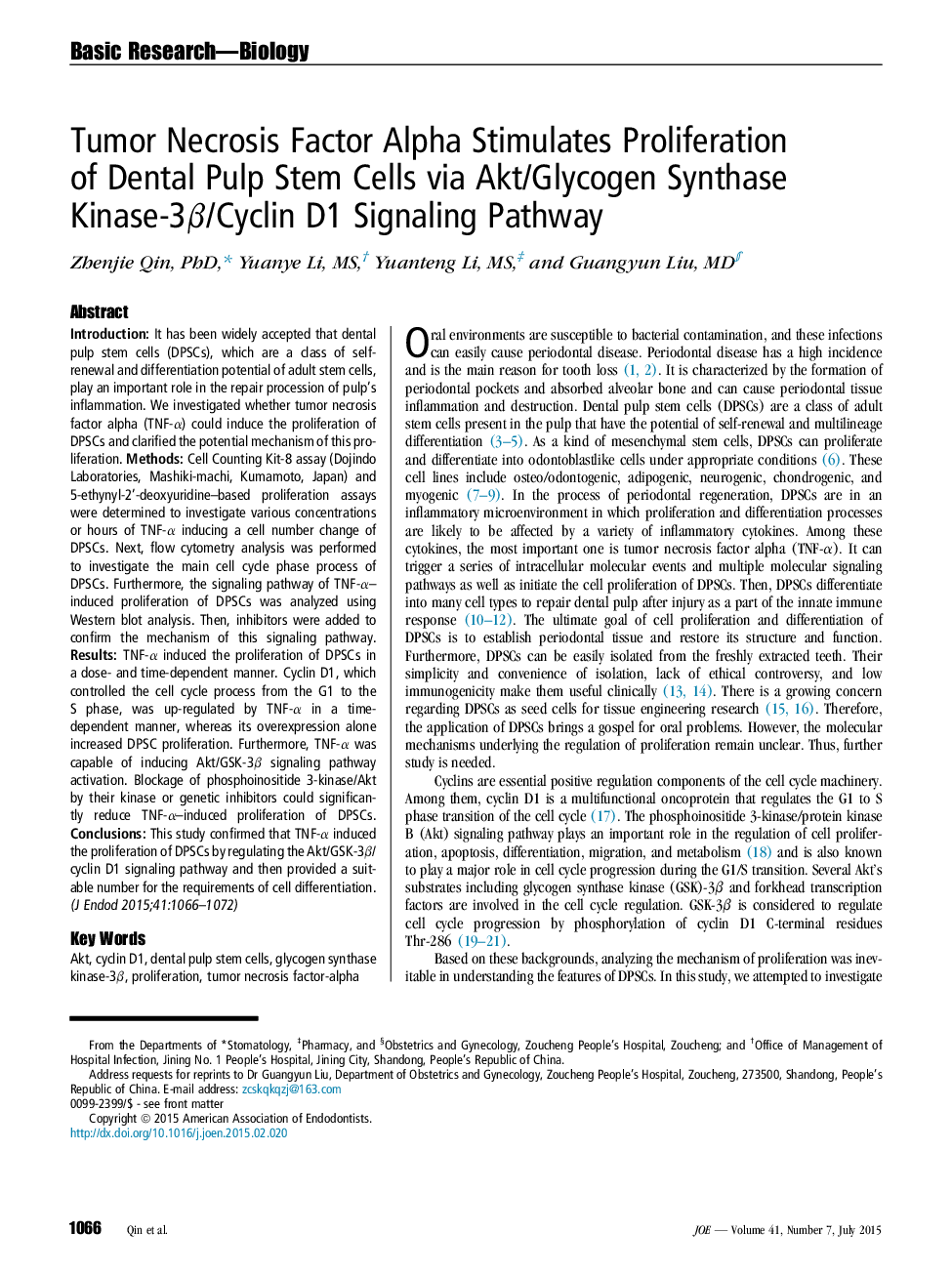| Article ID | Journal | Published Year | Pages | File Type |
|---|---|---|---|---|
| 3147464 | Journal of Endodontics | 2015 | 7 Pages |
•Tumor necrosis factor alpha (TNF-α) increases cell proliferation of dental pulp stems cells (DPSCs) in a dose- and time- dependent manner.•TNF-α can induce Akt/glycogen synthase kinase-3β/cyclin D1 signaling pathway activation of DPSCs.•TNF-α induces cell cycle process transition from the G1 to the S phase in DPSCs.•Akt inhibitors restrain TNF-α–induced activation of the Akt/glycogen synthase kinase-3β/cyclin D1 signaling pathway.•TNF-α-induced cell proliferation of DPSCs is earlier than cell differentiation.
IntroductionIt has been widely accepted that dental pulp stem cells (DPSCs), which are a class of self-renewal and differentiation potential of adult stem cells, play an important role in the repair procession of pulp's inflammation. We investigated whether tumor necrosis factor alpha (TNF-α) could induce the proliferation of DPSCs and clarified the potential mechanism of this proliferation.MethodsCell Counting Kit-8 assay (Dojindo Laboratories, Mashiki-machi, Kumamoto, Japan) and 5-ethynyl-2’-deoxyuridine–based proliferation assays were determined to investigate various concentrations or hours of TNF-α inducing a cell number change of DPSCs. Next, flow cytometry analysis was performed to investigate the main cell cycle phase process of DPSCs. Furthermore, the signaling pathway of TNF-α–induced proliferation of DPSCs was analyzed using Western blot analysis. Then, inhibitors were added to confirm the mechanism of this signaling pathway.ResultsTNF-α induced the proliferation of DPSCs in a dose- and time-dependent manner. Cyclin D1, which controlled the cell cycle process from the G1 to the S phase, was up-regulated by TNF-α in a time-dependent manner, whereas its overexpression alone increased DPSC proliferation. Furthermore, TNF-α was capable of inducing Akt/GSK-3β signaling pathway activation. Blockage of phosphoinositide 3-kinase/Akt by their kinase or genetic inhibitors could significantly reduce TNF-α–induced proliferation of DPSCs.ConclusionsThis study confirmed that TNF-α induced the proliferation of DPSCs by regulating the Akt/GSK-3β/cyclin D1 signaling pathway and then provided a suitable number for the requirements of cell differentiation.
